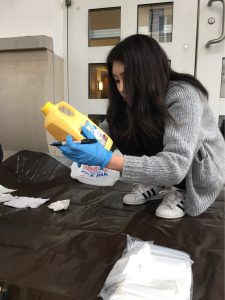
Excavation of household’s garbage on Trash Camp Day
Garbage is a unique database of human activity, a material culture that passively reflects one’s lifestyle. Our group simulated garbage archaeology on a household level to determine how the brand names seen within an assemblage of unknown origin reflects the values and attitudes of its users. On Trash Camp Day, this trash was excavated and each artifact was distinguished.
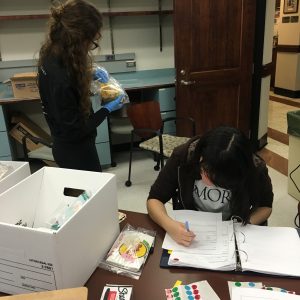
Categorizing and documenting of garbage assemblage
Inside, each artifact was further documented by finding measurements, taking photographs, and writing down descriptions and material implications. Our total assemblage was organized into the four categories of: Cosmetics, Food-Related Products, Personal (mail, receipts, tags), and Miscellaneous (tissues, hygienic trash, etc).
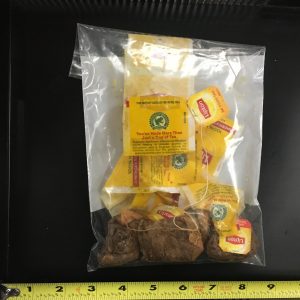
Disposed Lipton Tea Bags
By recognizing certain food products, its branding, and relative abundance, our group was able to determine certain food habits and tendencies. Here, based on the evidence of frequent tea consumption and the lack of coffee-related products in the trash, we get a glimpse in the household’s preference of tea beverages over caffeinated ones.
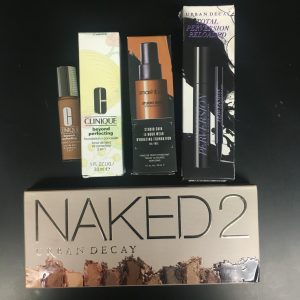
Discarded packaging of high-end cosmetics
The materiality of esteemed makeup brands such as Urban Decay, Smashbox, and Clinique seen in the household’s trash were used to evaluate the user’s demographic, financial status, consumer behavior, and self-perception.
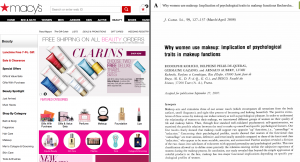
Secondary sources of Macy’s Beauty website and scholarly article on “Why Women Use Makeup”
These secondary sources strengthened my understanding and analysis of the implications of cosmetics in a household’s trash. Specifically, Macy’s Beauty website was used to find the relative prices of the purchased makeup, indicating at the user’s financially status, while the scholarly study on “Why Women Use Makeup” told of the covert, psychological reasonings behind the use of cosmetics.